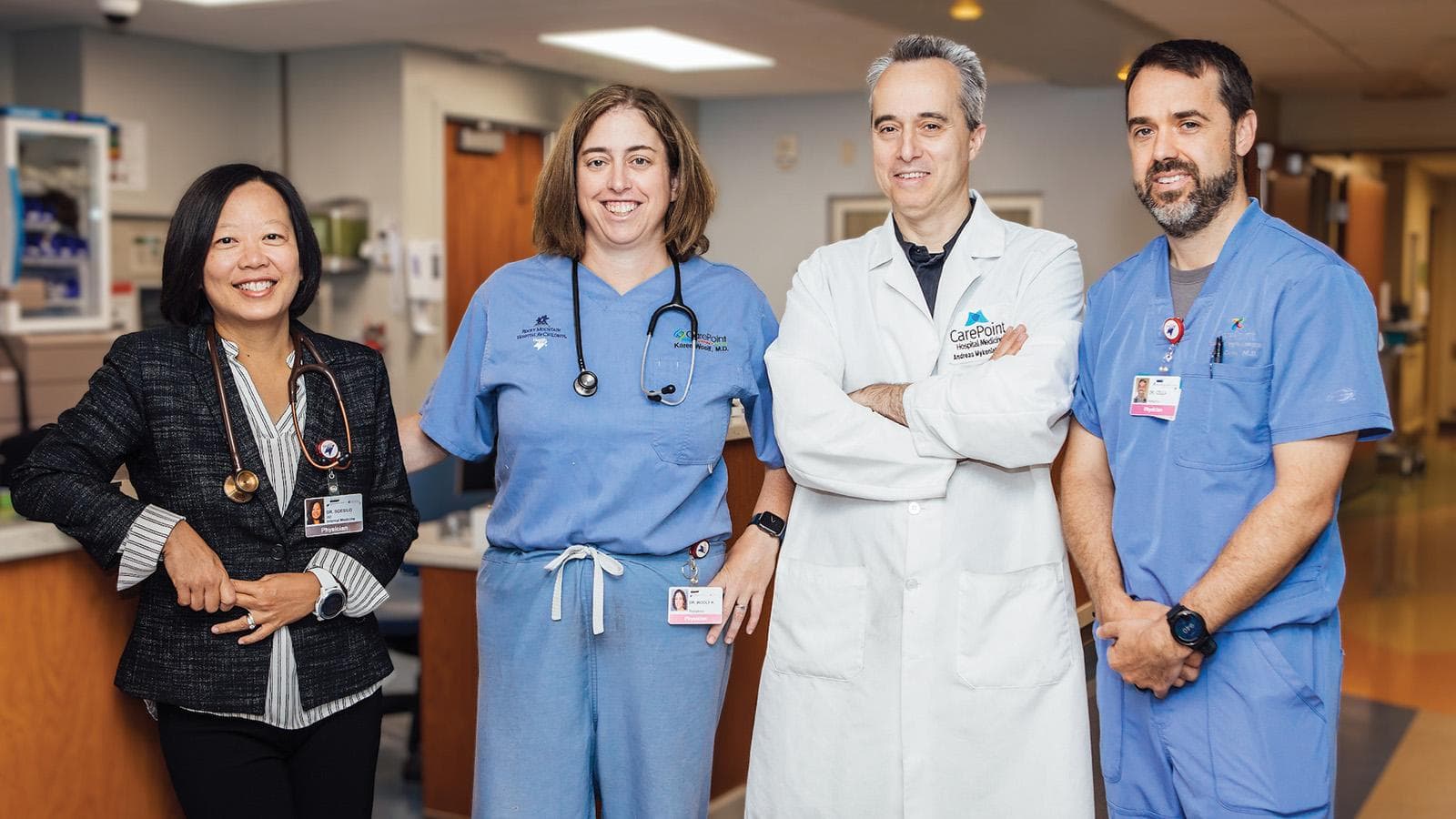Embracing Empowerment: 8 Reasons Why Clinicians Are Choosing Physician-Owned and Led Practices

July 25, 2024
In today’s rapidly evolving healthcare landscape, where bureaucratic oversight, private equity, and shareholders often dominate, physicians are increasingly seeking environments where they can exercise greater control over their practice.
Enter the physician-owned and led practice. The democratic governance and autonomous work environment of these practices empower physicians to do their best work and thrive professionally and personally.
Here, we explore eight reasons why physician-owned practices have become the preferred choice for many doctors, regardless of specialty.
#1: Clinical Autonomy and Freedom
One of the biggest appeals of a physician-owned practice for doctors is the level of autonomy it provides.
Unlike at larger healthcare systems, where non-medical administrators often dictate clinical protocols and guidelines, clinicians in a physician-owned practice are free — and encouraged — to make patient-care decisions based on their expertise and judgment. After all, the doctors are the experts. They should be treated as such.
This clinical freedom permits physicians to tailor their treatment plans to the unique needs of their patients. The result: more personalized and effective care.
#2: Democratic Governance
A place where every doctor has a voice. Sound nice? Well, it’s one of the hallmarks of a physician-owned practice.
Decisions regarding the practice’s direction, from implementing new technologies to modifying care workflows to adopting new compensation models or anything else, are made together. In other words, decisions reflect the physicians’ collective expertise and experience.
This collaborative approach ensures that policies and procedures are shaped by those who provide the care, fostering a sense of ownership and investment in the practice’s success. An inclusive governance model enhances job satisfaction and produces more cohesive and motivated clinical teams.
#3: Work-Life Balance
Work-life balance is prioritized at physician-owned practices because the decision-makers — the physicians themselves — understand the demanding nature of the medical profession firsthand.
Schedules are better. Burnout is less of an issue. Personal and family needs can better be accommodated. By prioritizing work-life balance, physician-owned practices allow doctors to maintain their mental and physical well-being and enjoy a long, fulfilling career.
#4: Financial Benefits and Incentives
Physician-owned practices often offer significant financial incentives typically unavailable in other employment models. Doctors in these practices often have higher earning potential due to profit-sharing arrangements and the absence of corporate overhead costs.
Additionally, owning a stake in the practice means that physicians directly benefit from its financial success. This shared ownership model encourages a more strategic and prudent approach to managing resources, aligning the financial interests of the physicians with those of the entire practice.

Interested in Joining a Physician-Owned and Led Practice?
Consider a career with CarePoint! As a CarePoint physician, you’ll work in an autonomous environment and be able to remain focused on what matters most — taking great care of patients!
#5: Professional Growth and Leadership Opportunities
A physician-owned practice offers ample opportunities for professional growth and leadership development, which creates a culture of continuous learning and professional advancement.
Physicians are often encouraged to take on leadership roles within the practice, be they in clinical management, business strategy, or another area. These roles allow doctors to gain valuable experience they otherwise may not have in a more hierarchical, corporate setting.
#6: Stronger Patient-Physician Relationships
Patient-centered care is at the top of the priority list at physician-owned practices. Not shareholders. Not bottom lines. Not corporate quotas.
Patients.
Staying laser-focused on providing the best care at all times leads to stronger and more meaningful relationships between physicians and their patients. This depth of care is highly valued by patients and contributes significantly to better health outcomes and greater patient satisfaction.
#7: Innovation and Quality of Care
Physician-owned practices are often at the forefront of medical innovation. With the autonomy to implement new techniques and technologies, these practices can quickly adapt to the latest advancements in medical science.
Who wins? The patients, of course. Because improved techniques and technologies mean improved care. What’s more, clinicians in a multispecialty practice can collaborate across different disciplines to deliver holistic and coordinated care.
#8: Community Engagement
Clinicians in physician-owned practices tend to have stronger ties to the communities they serve because they live in the communities they serve. They’re not “mail-order doctors.” They’re there to stay.
As a result, they often participate in community health initiatives and outreach programs, giving them a deeper connection to their community and those within it.
Wrapping It Up
Physician-owned practices offer a unique and empowering work environment for clinicians. Who stands to gain from these practices? Physicians, yes. But also patients and whole communities.
For current and soon-to-be physicians, joining a physician-owned and led practice puts you at the center of a healthcare model that values expertise, gives you and your fellow doctors a voice, supports work-life balance and professional development, and prioritizes high-quality, patient-centered care above all else.
Because why would physicians want anything else?


